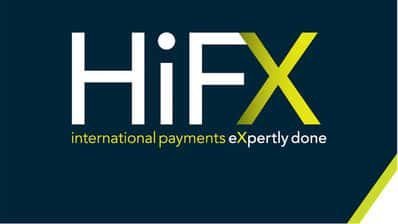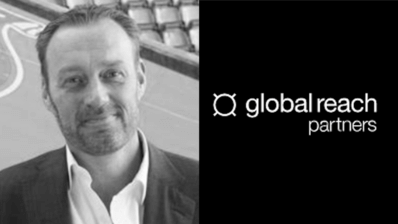Last week, our CEO Daniel Webber interviewed Mark Smith-Halvorsen (MSH), the CEO of Global Reach Partners. The conversation follows...
Daniel: Last year Inflexion bought Global Reach Partners and also acquired FC Exchange. What do you think is making the FX hedging and international payments space so attractive to private equity groups at the moment?
MSH: I think that there’s clearly good growth and development potential in our sector, as we have demonstrated in recent years. I also think there is a strong return on revenue in the business they have been active with. Similar to the PE world, there’s an energy about us, we’re sales focused businesses which everybody likes and we use technology extensively. We are linked to a very dynamic market, which is what our products are set around, making them attractive.
Daniel: What are the big initiatives to drive the next period of growth?
MSH: One of them is moving into some overseas money transfer markets; taking what we do from a corporate perspective and delivering that into international markets. GRP has some experience of that having operated in Spain, Germany and the UAE in our fifteen-year tenure. We’ve learned lessons as a result of doing that and we are going to do things slightly differently moving forward. We are going to broaden our client offering from top to bottom through STP (straight through processing). We are looking at truly taking someone’s initial interest with us, even at a corporate level, via a digital and technology supported path, right through dealing, payment execution, with very little interference from Global Reach Partners, or our institutional partners

Daniel: Other players in the space have been focusing on more standard international money transfers and pulling away from the hedging and FX options. It’s clearly a strength for you - can you talk about what gives you confidence in your product overall and how you are looking to push FX options going forward?
MSH: FX options are a product that have been under the microscope and open to criticism for a while now, and some of the biggest financial services businesses in the UK have had difficulties with it. I think the secret to the success is discipline. We have maintained a cap on the amount of products we are willing to recommend and transact on, and we’ve made sure that our products have remained very much in the suitable end of the recommendation scale, and will continue to do that. We’ve been promoting FX Option products where appropriate for a long time - six years. We have experience and we make sure our customers are experienced and educated in the products they use. We’ve walked away from a lot of business where we could have sold a product but have chosen not to. As such, it’s become a goal to become the expert non-bank provider of FX options- where appropriate, and that’s a key statement.
Daniel: And do you also want to take FX options internationally?
MSH: Yes, for sure. If we feel that the product is appropriate for the client, the regulator and the local market then yes.
Daniel: How do you view offering credit to customers?
MSH: It’s part of what we do and its part of what many of our clients and potential clients seek. It’s a reason for coming outside of the banks, but as you’d imagine it carries a lot of risk and that’s a risk that is comprehensively managed inside our business. Once again we are very disciplined. We choose to offer a limited credit lines to people based on risk and reward. It’s fair to say, once again, there is lots more business we could be doing right now, if we were prepared to ever take more risk or dilute our true cost of credit., We will stick firmly to our own risk appetite and policies as we move forwards, because broadly they work for everybody involved.
Daniel: If you look five, maybe ten years forward - how do you see the sector within the UK changing? What are the banks going to be doing and what will Global Reach be doing?
MSH: This is very interesting. I think in the last five years, I’ve seen the relationship with banks and independent FX brokers really change and morph into kind of solid state. The banks see us and treat us as aggregators now, so they’re missing out on the front end profitability of what we do, but they also are choosing not to carry the cost for the marketing, lead generation, KYC and technology elements of dealing with UK corporates. Ironically what we then do, is package that up, average that transaction volume up, combine those payments and take them back to the ban. They’ve got used to quite sizeable incomes from us in terms of treasury and transaction fees. In a way, we’ve gotten very used to living with each other now and we understand what role each party plays in that. You cannot operate a business like this unless you’ve got those really solid, valuable banking and treasury counterparties to underwrite the risks and facilitate payments. We are cohabiting nicely at the moment - I don’t expect that to change. But what I do expect is that the number of players and independent operators will shrink.
Daniel: What will drive this change in the numbers of players in the market?
MSH: It will be driven by the sophistication by which we will need to operate from a technology point-of-view, the ever changing world of regulation and by the demands of the banks and institutions that underwrite our activity
Daniel: If you were to pick out one technology that you think will really drive change over the next ten years, what would you say it is?
MSH: Good question, if I focused on payments technology, I would say the underlying demand is going to be speed and accuracy - they are primarily the same thing, because many people can make an accurate payment slowly. Secondary to that its obviously going to be cost. In terms of staying competitive and being able to deliver an excellent end transaction, we’re going to have to work tirelessly on being able to deliver quickly and accurately and broadening a range of destinations.
Daniel: Is that using blockchain technology because of some of the accuracy people see there, or do you think it’s technology but it’s not necessarily blockchain?
MSH: We’ve been watching blockchain and it still needs to develop. The reasons for needing it and using it need to become more obvious. Right now if you were to chuck a safe, secure server environment up into the cloud, just so as to play around with blockchain I don’t see how we could justify immediate client facing improvements or benefits. But what we did talk about earlier, is the ongoing demand for client payments to be fast, efficient and safe - that will involve exactly what I have just talked about in the near future and would probably be best protected by blockchain technology.
Daniel: In terms of FX hedging and options - are there different technologies that drive that?
MSH: We are thinking about how we would see mobile technology dropping into our proposition. Because of our focus on the corporate financial decision makers, we are developing mobile apps for buying currency and making payments. You’re not going to get customers just jumping on a business trip to Barcelona in Check-In, thinking, “Oh, I better check my hedging, let me fire the iPhone, jump on the Global Reach app and get that done before I get to my seat! - but where it will play a vital part is where through dual verification for currency purchase and payments via mobile technology. I also think it provides an excellent push channel for information and updates, which is a part of what we do routinely for our clients. It also provides a mobile portal for reporting, for example. So if someone is sitting there thinking about what they’ve bought and sold, what funds they hold on account, what happened to the last payments batch -etc., it’s going to be a good way to supply that information.
Daniel: Aside from running your business, what are your interests outside of work?
MSH: I try to stay fit. My CEO activities are kind of working against that! I like to spend a lot of time at work, but I also like to spend time with my family and moreover, I like to travel quite a lot. The destinations are getting further afield and I’m really enjoying when I get that opportunity to travel - seeing more of the world.

Oanda CEO Vatsa Narasimha On the Future of Money Transfer

Mike Massaro, Flywire CEO Interview - On Money Transfers and Receivable Payments







